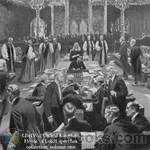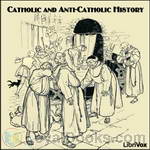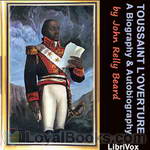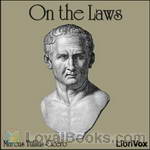|
Books Should Be Free Loyal Books Free Public Domain Audiobooks & eBook Downloads |
|
|
Books Should Be Free Loyal Books Free Public Domain Audiobooks & eBook Downloads |
|
Books on Politics |
|---|
|
Book type:
Sort by:
View by:
|
By: The Venerable Bede (673-735) | |
|---|---|
 Ecclesiastical History of England
Ecclesiastical History of England
Bede's Ecclesiastical History of England is a work in Latin by Bede on the history of the Christian Churches in England, and of England generally; its main focus is on the conflict between Roman and Celtic Christianity. It is considered to be one of the most important original references on Anglo-Saxon history. It is believed to have been completed in 731, when Bede was approximately 59 years old. Divided into five books, it covers the history of England, ecclesiastical and political, from the time of Julius Caesar to the date of its completion (731)... | |
By: Unknown | |
|---|---|
 United Kingdom House of Lords Speeches Collection
United Kingdom House of Lords Speeches Collection
This collection comprises recordings of seven historic speeches given to the UK House of Lords between 1641 and 1945. Readings are of speeches origninally given by the 1st Earl of Strafford (Thomas Wentworth), the 1st Earl of Chatham (William Pitt the Elder), the 6th Baron Byron (the poet Lord Byron), the 1st Duke of Wellington (Arthur Wellesley), the 3rd Earl of Lucan (George Lord Bingham) and the 3rd Earl Russell (the philosopher Bertrand Russell). | |
By: Charles Dickens (1812-1870) | |
|---|---|
 Charles Dickens 200th Anniversary Collection Vol. 1
Charles Dickens 200th Anniversary Collection Vol. 1
The Charles Dickens 200th Anniversary Collection comprises short works - fiction, essays, poetry, letters, magazine articles and speeches - and each volume will be a pot pourri of all genres and periods of his writing. This first volume is released on Dickens' 200th birthday, February 7th 2012. Further volumes will follow during the anniversary year.Volume 1 includes short stories including, amongst others, The Holly Tree, the first part of Holiday Romance and three pieces from Mugby Junction.Some... | |
By: Calista McCabe Courtenay | |
|---|---|
 George Washington
George Washington
In this biography for young people, Calista McCabe Courtenay takes the reader from George Washington the surveyor to his early military career, first as a colonel in the Virgina militia and then as a member of General Braddock'a staff during the French and Indian War. He later commanded the Virginia forces before joining the First Continental Congress. Much of the book is devoted to his campaigns during the American Revolution. At the end, we see him as President for two terms. | |
By: Upton Sinclair (1878-1968) | |
|---|---|
 The Machine
The Machine
Upton Sinclair is best known for his novel The Jungle, an expose of the meatpacking industry. He was also a playwright whose works for the stage reflected the same progressive viewpoints found in his other writing. In The Machine, published as part of Sinclair's 1912 collection Plays of Protest, Socialist activists show a rich man's daughter the truth about the society in which she has been raised. | |
By: Friedrich Engels (1820-1895) | |
|---|---|
 Socialism: Utopian and Scientific
Socialism: Utopian and Scientific
The main idea of "Socialism: Utopian and Scientific" (1880) was distinguishing scientific socialism and utopian socialism. Engels begins by chronicaling the thought of utopian socialists, starting with Saint-Simon. He then proceeds to Fourier and Robert Owen. In chapter two, he summarizes dialectics, and then chronicles the thought from the ancient Greeks to Hegel. Chapter three summarizes dialectics in relation to economic and social struggles, essentially echoing the words of Marx. | |
By: Camille Flammarion (1842-1925) | |
|---|---|
 Omega: The Last Days of the World
Omega: The Last Days of the World
Omega: The Last Days of the World is a science fiction novel by astronomer Camille Flammarion. On 25th century Earth, a comet is on a path to collide with the Earth ending it all. Astronomers predict different scenarios as to how they will all die depending on the chemical composition of the comet. Omega probes the philosophical and political consequences that arise as the human race faces the end of the world. | |
By: Various | |
|---|---|
 Catholic and Anti-Catholic History
Catholic and Anti-Catholic History
G.K. Chesterton and James Walsh join Hilaire Belloc in an energetic rollout of the means by which history becomes propaganda, to the damage, not only to truth, but to the human soul. | |
By: H. G. Wells (1866-1946) | |
|---|---|
 Anticipations
Anticipations
Wells considered this book one of his most important, a natural follow-up to such works as his Man of the Year Million and The Time Machine. His goal was to get people to think and act in new ways. The book starts with a look at how humans get along socially and how they carry out their business ventures. It then discusses how these elements influence others, such as politics, the world of work, and education. H. G. tried to make clear how the current social order was disintegrating without preparing another to take its place. He then traced the roots of democracy, which in its present state he saw as unworkable. Instead, he proposed a new republic. He also critiqued modern warfare. | |
By: Miriam Michelson (1870-1942) | |
|---|---|
 A Yellow Journalist
A Yellow Journalist
Rhoda Massey is a young, sharp reporter for a daily newspaper in San Francisco. After proving herself an astute and fearless investigator on her first big story, she spends most of her waking hours running down leads and doing (almost) anything it takes to produce headline grabbing tales and to be the first one to do so. She must compete with her male colleagues where she works but also with those from other newspapers. Rhoda discovers it useful to be pretty and small in stature (great for eavesdropping from tight and unusual locations) but it's her shrewd mind and her nose for news that propel her to pursue stories in dangerous places and, sometimes, from dangerous characters... | |
By: Elizabeth Cady Stanton (1815-1902) | |
|---|---|
 Eighty Years and More; Reminiscences 1815-1897
Eighty Years and More; Reminiscences 1815-1897
Elizabeth Cady Stanton was one of the premier movers in the original women’s rights movement, along with Susan B. Anthony, her best friend for over 50 years. While Elizabeth initially stayed home with her husband and many babies and wrote the speeches, Susan went on the road to bring the message of the women’s rights movement to an often hostile public. When black men were given the vote in 1870, Susan and Elizabeth led the women’s rights establishment of the time to withhold support for a bill that would extend to black men the rights still denied for women of all colors... | |
By: Plato (424-348 BC) | |
|---|---|
 Laws
Laws
Νόμοι (Laws) is Plato's final dialogue written after his attempt to advise the tyrant Dionysius II of Syracuse. The dialogue takes place between: an Athenian Stranger (Socrates? A god in human form?); the quiet Lacedaemonian Megillus; and the Cretan Cleinias. The Stranger asks whether humans live to be more effective at waging war or if there is something more important a legislator should seek to achieve. During their pilgrimage Cleinias discloses his role in the establishment of a new colony... | |
By: Henry Morgenthau (1856-1946) | |
|---|---|
 Ambassador Morgenthau's Story
Ambassador Morgenthau's Story
Ambassador Morgenthau’s memoirs of his years in the service of the United States in Constantinople, (today Istanbul), are an important primary historical resource for the study of the dissolution of the Ottoman Empire and the Armenian Genocide. During this genocide, approximately 1,500,000 Armenians living in Anatolia were murdered in an attempt to rid Turkey of its non-Turkish populations. Mr. Morgenthau left Turkey a frustrated man, having done all that he was able through diplomatic circles to halt the murders, to no avail... | |
By: Theodore Roosevelt (1858-1919) | |
|---|---|
 Strenuous Life: Essays and Addresses of Theodore Roosevelt, The
Strenuous Life: Essays and Addresses of Theodore Roosevelt, The
This book is a collection of Theodore Roosevelt’s published commentaries and public addresses on the general theme of the requirements for individual and collective success in the personal, civic, political, and social arenas. (Introduction by Bob Neufeld) | |
By: Jacob A. Riis (1849-1914) | |
|---|---|
 Neighbors – Life Stories of the Other Half
Neighbors – Life Stories of the Other Half
These stories have come to me from many sources—some from my own experience, others from settlement workers, still others from the records of organized charity, that are never dry, as some think, but alive with vital human interest and with the faithful striving to help the brother so that it counts. They have this in common, that they are true. For good reasons, names and places are changed, but they all happened as told here. I could not have invented them had I tried; I should not have tried if I could... | |
By: Mark Twain | |
|---|---|
 Anti-imperialist writings
Anti-imperialist writings
This audiobook is a collection of Mark Twain's anti-imperialist writings (newspaper articles, interviews, speeches, letters, essays and pamphlets). | |
By: Ella Middleton Tybout (1871-1952) | |
|---|---|
 The Wife of the Secretary of State
The Wife of the Secretary of State
In this political thriller set at the turn of the 20th century, several lives, both of Washington insiders and those on the periphery, intersect over the issue of some stolen diplomatic papers. And what hidden secrets bind Mrs. Redmond, the wife of the Secretary of State, to the unscrupulous Count Valdmir, the Russian ambassador? Politics, power, and intrigue combine in this novel, first published in 1905. | |
By: John Relly Beard (1800-1876) | |
|---|---|
 Toussaint L’Ouverture: A Biography and Autobiography
Toussaint L’Ouverture: A Biography and Autobiography
François-Dominique Toussaint L’Ouverture (1743-1803) rose to fame in 1791 during the Haitian struggle for independence. In this revolt, he led thousands of slaves on the island of Hispañola to fight against the colonial European powers of France, Spain and England. The former slaves ultimately established the independent state of Haiti and expelled the Europeans. L’Ouverture eventually became the governor and Commander-In-Chief of Haiti before recognizing and submitting to French rule in 1801... | |
By: Various (1833-1884) | |
|---|---|
 John Stuart Mill; His Life and Works
John Stuart Mill; His Life and Works
This biography is actually a series of essays by prominent personalities of the time that shed light on John Stuart Mill's life and areas of endeavor. Those areas include his experiences in India House, his moral character, certain botanical explorations, how effective he was as a critic, studies in morals and the law, and discoveries concerning political economy. They also explore ideas concerning his influence on institutions of higher learning, accomplishments as a politician, and fame as a philosopher. | |
By: Marcus Tullius Cicero (106-43 BC) | |
|---|---|
 On the Laws
On the Laws
De Legibus (On the Laws) is a philosophical dialogue between: Cicero's friend Titus Pomponius Atticus; Cicero's brother Quintus; and Cicero himself. The dialogue is written in the style of Plato who was greatly revered by Cicero. De Legibus forms a continuation of Cicero's own work De re Publica (On the Commonwealth or On the Republic) and is also a response to Plato's work Νόμοι (Laws). It is unknown how many books the work originally contained but several complete books have been lost. Cicero's... | |
By: United States Senate Committee on Armed Services | |
|---|---|
 Report of the Inquiry into the Role and Oversight of Private Security Contractors in Afghanistan
Report of the Inquiry into the Role and Oversight of Private Security Contractors in Afghanistan
The Inquiry into the Role and Oversight of Private Security Contractors in Afghanistan, which reported in September 2010, was precipitated by events in August 2008, when US forces bombed the Afghan village of Azizabad. This gave rise to a public dispute between the US Government and the United Nations about the level of fatalities caused by the attack and about whether those killed had been civilians or Taliban-linked insurgents. Allegations soon emerged that the attack had been based on false information deliberately fed to the US military by Afghan employees of ArmorGroup, a private security contractor, and that these employees were engaged in murder and anti-coalition activities... | |
By: Percy Bysshe Shelley (1792-1822) | |
|---|---|
 The Masque of Anarchy
The Masque of Anarchy
The Masque of Anarchy was Shelley's response to the Peterloo massacre at St Peter's Fields, Manchester, where 18 died and hundreds were injured, after Hussars charged into a rally for parliamentary reform. Written in Italy in 1819, the poem was not published until 1832, ten years after Shelley's death. This reading is from the first published edition with the addition of three words that were inserted in full only in later additions ('Eldon' in Stanza IV and 'Bible' and 'Sidmouth' in Stanza VI). The poem is preceded by Leigh Hunt's preface to the 1932 edition and followed by Harry Buxton Forman's 1887 lecture on the poem to the Shelley Society. | |
By: Josiah Priest (1788-1851) | |
|---|---|
 Bible Defence of Slavery
Bible Defence of Slavery
The full title of this book is Bible Defense of Slavery; and Origin, Fortunes, and History of the Negro Race, by Rev. Josiah Priest, A. M. 5th edition. This is a compilation of pro-slavery literature and propaganda that went through numerous editions in the Southern United States before the Civil War. It contains the highly influential book, Slavery, as it Relates to the Negro, or African Race, by Rev Josiah Priest, which was originally published in 1843. This compilation also includes many essays and favorable reviews of Rev Priest’s book from contemporary magazines and newspapers, and written endorsements from national politicians... | |
By: William Morris (1834-1896) | |
|---|---|
 Signs of Change
Signs of Change
In the 1880s William Morris, the artist and poet famously associated with the Arts and Crafts movement, left the Liberal Party and threw himself into the Socialist cause. He spoke all over the country, on street corners as well as in working men's clubs and lecture halls, and edited and wrote for the Socialist League's monthly newspaper. Signs of Change is a short collection of his talks and writings in this period, first published in 1888, covering such topics as what socialism and work should be, and how capitalism and waste developed. | |
By: Francis Archibald Bruton (1860-1929) | |
|---|---|
 Three Accounts of Peterloo
Three Accounts of Peterloo
A companion volume to F.A. Bruton's 'The Story of Peterloo', the full title of this short collection is 'Three Accounts of Peterloo by Eyewitnesses, Bishop Stanley, Lord Hylton, John Benjamin Smith with Bishop Stanley's Evidence at the Trial'. The three contemporary accounts, each with a short introduction by the editor, give different perspectives on the events of 16 August 1819, when a troop of Hussars accompanied by the local Yeomanry rode into a peaceful reform rally at St. Peter's Fields, Manchester, leaving 18 dead and more than 700 injured. | |
By: James Thomson (1834-1882) | |
|---|---|
 Satires and Profanities
Satires and Profanities
"Believing as I do that James Thomson is, since Shelley, the most brilliant genius who has wielded a pen in the service of Freethought, I take a natural pride and pleasure in rescuing the following articles from burial in the great mausoleum of the periodical press. There will doubtless be a diversity of opinion as to their value. One critic, for instance, has called “The Story of a Famous Old Jewish Firm” a witless squib; but, on the other hand, the late Professor Clifford considered it a piece of exquisite mordant satire worthy of Swift... | |
By: Gene Sharp (1928-) | |
|---|---|
 There Are Realistic Alternatives
There Are Realistic Alternatives
Violence in society and politics, whether in the form of war, terrorism, dictatorship, oppression, usurpation, or genocide, is widely recognized as a grave problem. The objective of this essay is to explore a different perspective on the nature of the problem of widespread violence in society and politics that suggests what will be required for its resolution. We need to analyze the conditions under which it will be possible to reduce drastically the reliance on military and other violent means of conflict. We need to examine why violence is so widely regarded as necessary for good causes as well as for bad ones, and how fundamental change away from that syndrome might be achieved. | |
By: Abdu’l-Bahá ‘Abbás (1844-1921) | |
|---|---|
 Mysterious Forces of Civilization
Mysterious Forces of Civilization
The Mysterious Forces of Civilization (Persian: Risálih-i-Madaníyyih) is a work written before 1875 by ‘Abbás Effendí, known as ‘Abdu’l-Bahá (the Servant of Bahá) (1844-1921). The Persian text was first lithographed in Bombay in 1882 and printed in Cairo in 1911. ‘Abdu’l-Bahá was the eldest son and appointed successor of Bahá’u’lláh, the Founder of the Bahá’í Faith. The original text of this work was written and published anonymously, and the first English translation (by Johanna Dawud) was published in London in 1910 and Chicago in 1918, under the title ‘Mysterious Forces of Civilization’ written by "an Eminent Bahai Philosopher... | |
By: Charles-Louis de Secondat, baron de La Brède et de Montesquieu (1689-1755) | |
|---|---|
 Spirit of Laws (Volume 1)
Spirit of Laws (Volume 1)
This audiobook covers Volume 1 (Books I to XIX) of "The Spirit of the Laws" (French: De "l'esprit des lois", also sometimes called "The Spirit of Laws"). Spirit of Laws is a treatise on political theory first published anonymously by Charles de Secondat, Baron de Montesquieu in 1748 with the help of Claudine Guérin de Tencin. Originally published anonymously partly because Montesquieu's works were subject to censorship, its influence outside of France was aided by its rapid translation into other languages... | |
By: George Eliot (1819-1880) | |
|---|---|
 Felix Holt, The Radical
Felix Holt, The Radical
"Harold Transome is a landowner who goes against his family's political tradition (much to his mother's distress), while Felix Holt is a sincere radical. The setting of the book, the 1832 parliament election, is used to discuss the social problems of that time. A secondary plot involves Esther Lyon, the stepdaughter of a minister who is the real heiress to the Transome estate, with whom both Harold Transome and Felix Holt fall in love. Esther loves poor Felix Holt, but would she choose a comfortable life with Harold Transome?" | |
By: An Anti-Slavery Convention of American Women (1837-1837) | |
|---|---|
 Address to Free Colored Americans
Address to Free Colored Americans
The first Anti-Slavery Convention of American Women met in New York City in May, 1837. Members at the Convention came from all walks of life and included such prominent women as Mary Parker, Lucretia Mott, the Grimke sisters, and Lydia Maria Child. One outcome of this important event was a statement of the organization’s role in the abolitionist movement as expressed in AN ADDRESS TO FREE COLORED AMERICANS, which begins: “The sympathy we feel for our oppressed fellow-citizens who are enslaved... | |
By: Charles C. Nott (1827-1916) | |
|---|---|
 Mystery of the Pinckney Draught
Mystery of the Pinckney Draught
Charles Pinckney, member of the South Carolina legislature, Confederation Congress, U.S. Congress, and notably the Constitutional Convention of 1787, may have been regarded by some as perhaps the true author of the U.S. Constitution, although most likely James Madison would vehemently argue the point. This book investigates what may, or may not have happened to the draft of the Constitution which was drawn up by Charles Pinckney and submitted to the Constitutional Convention in May of 1787, and how (or if) it differed from the Constitution which was adopted... | |
By: Errico Malatesta (1853-1932) | |
|---|---|
 Anarchy
Anarchy
Anarchy explained by the anarchist Errico Malatesta. | |
By: Thomas Paine (1737-1809) | |
|---|---|
 Age of Reason (version 2)
Age of Reason (version 2)
The Age of Reason; Being an Investigation of True and Fabulous Theology is a pamphlet, written by a British and American revolutionary Thomas Paine. The Age of Reason challenges institutionalized religion and challenges the legitimacy of the Bible, the central sacred text of Christianity. Published in three parts in 1794, 1795, and 1807, it was a bestseller in the United States, where it caused a short-lived deistic revival. Part 1 was written sometime in 1793, and attacks the concepts of divine revelation and inspiration... | |
By: Henry George (1839-1897) | |
|---|---|
 Progress and Poverty
Progress and Poverty
What I have done in this book, if I have correctly solved the great problem I have sought to investigate, is, to unite the truth perceived by the school of Smith and Ricardo to the truth perceived by the schools of Proudhon and Lasalle; to show that laissez faire (in its full true meaning) opens the way to a realization of the noble dreams of socialism; to identify social law with moral law, and to disprove ideas which in the minds of many cloud grand and elevating perceptions. | |
By: Saki (1870-1916) | |
|---|---|
 Westminster Alice
Westminster Alice
Published five years before John Kendrick Bangs had the same idea with Alice in Blunderland, Saki, in his 1902 series of satirical articles, takes an Alice in Wonderland view of British politics, which Alice finds even stranger than events in Wonderland.In all honesty, owing to its extremely topical nature this political satire hasn't worn well, which explains why it has virtually sunk without trace. To appreciate it at all, it's really rather necessary to understand the topical references. I am... | |
By: D. W. Griffith (1875-1948) | |
|---|---|
 Rise and Fall of Free Speech in America
Rise and Fall of Free Speech in America
The Rise and Fall of Free Speech in America was D.W. Griffith's first response to the attacks made on The Birth of a Nation. In it he played on the 'intolerance' of those who would not permit him freedom of speech in his films. This view on intolerance led directly to the creation of the film of the same name. | |
By: Gene Sharp (1928-0) | |
|---|---|
 From Dictatorship to Democracy (version 2)
From Dictatorship to Democracy (version 2)
From Dictatorship to Democracy, A Conceptual Framework for Liberation is a book-length essay on the generic problem of how to destroy a dictatorship and to prevent the rise of a new one. The book was written in 1993 by Gene Sharp (b. 1928), a professor of political science at the University of Massachusetts. The book has been published in many countries worldwide and translated into more than 30 languages. Editions in many languages are also published by the Albert Einstein Institution of Boston, Massachusetts... | |
By: Henry Cabot Lodge (1850-1924) | |
|---|---|
 Theodore Roosevelt; An Address Delivered Before The Congress Of The United States
Theodore Roosevelt; An Address Delivered Before The Congress Of The United States
A biographical encomium delivered on the occasion of Roosevelt's death. Theodore "T.R." Roosevelt, Jr. (1858 – 1919) was an American author, naturalist, explorer, historian, and politician who served as the 26th President of the United States. He was a leader of the Republican Party (the "GOP") and founder of the Progressive Party. He is noted for his exuberant personality, range of interests and achievements, and his leadership of the Progressive Movement, as well as his "cowboy" persona and robust masculinity... | |
By: Harold J. Laski (1893-1950) | |
|---|---|
 Karl Marx: An Essay
Karl Marx: An Essay
Born in Manchester in 1893, Harold Laski was a leading figure in the left-wing of British socialism in the first half of the 20th century. An executive member of the Fabian Society and member of the Socialist League faction of the Labour Party, he was party chairman in 1945-6. As a professor at the London School of Economics he influenced a number of prominent politicians of the post-war years, including leaders of the independence movements of Asia and Africa, and Ralph Milliband, father of the current Labour Party leader, Ed Milliband... | |
By: George F. Dillon (1836-1893) | |
|---|---|
 War of Antichrist with the Church and Christian Civilization
War of Antichrist with the Church and Christian Civilization
The War of Anti-Christ with the Church and Christian Civilization is a book written in 1885 by an Irishman, George F. Dillon, DD. It was republished by Fr. Denis Fahey in 1950 as Grand Orient Freemasonry Unmasked as the Secret Power Behind Communism. The central theme of the book alleges that atheistic Illuminism, through the infrastructure of Grand Orient freemasonry, driven by the ideology of the philosophies laid the foundations for a large scale, ongoing war against Christendom in general and Catholic Church in particular... | |
By: Abraham Lincoln (1809-1865) | |
|---|---|
 Emancipation Proclamation
Emancipation Proclamation
After having written and released an initial draft of this proclamation in September of 1862, minor changes were made and Lincoln signed it on January 1st, 1863. It declared free the slaves in 10 states not then under Union control, with exemptions specified for areas already under Union control in two states. Lincoln spent the next 100 days preparing the army and the nation for emancipation, while Democrats rallied their voters in the 1862 off-year elections by warning of the threat freed slaves posed to northern whites... | |
By: Arthur P. Hinman (?-?) | |
|---|---|
 How a British Subject Became President of the United States
How a British Subject Became President of the United States
In 1880, the New York Times reported a curious story from St. Albans, Vermont, about a mysterious figure, an attorney and Democratic operative named A. P. Hinman. Hinman privately told local Democratic leaders that he had been hired by the Democratic National Committee to obtain evidence that Vice-President-elect Chester A. Arthur was not qualified to hold the office of Vice President, but rather that Arthur was a Canadian-born alien. President Garfield was assassinated in 1881 and Arthur became twenty first President of the United States, and a pretty good one by all accounts... | |
By: Constantine Panunzio (1884-1964) | |
|---|---|
 Deportation Cases of 1919-1920
Deportation Cases of 1919-1920
"The study here presented embodies the findings of an investigation into the recent [1919-1920] deportations of persons deemed to be unlawfully in the country. . . Its purpose is to call public attention to practices that are inconsistent with the American tradition of justice and fair-play." | |
By: Various | |
|---|---|
 United Kingdom House of Commons Speeches Collection, volume 3
United Kingdom House of Commons Speeches Collection, volume 3
This is the third LibriVox collection of speeches given in the House of Commons of the United Kingdom. The collection comprises recordings of 10 historic speeches given to the UK House of Commons between 1601 and 1960. Readings are of speeches originally given by Queens Elizabeth I and Victoria, and by parliamentarians Edmund Burke, Herbert Asquith, Winston Churchill, Barbara Castle, Margaret Thatcher and Michael Foot. | |
By: John Relly Beard (1800-1876) | |
|---|---|
 Toussaint L’Ouverture: A Biography and Autobiography
Toussaint L’Ouverture: A Biography and Autobiography
François-Dominique Toussaint L’Ouverture (1743-1803) rose to fame in 1791 during the Haitian struggle for independence. In this revolt, he led thousands of slaves on the island of Hispañola to fight against the colonial European powers of France, Spain and England. The former slaves ultimately established the independent state of Haiti and expelled the Europeans. L’Ouverture eventually became the governor and Commander-In-Chief of Haiti before recognizing and submitting to French rule in 1801... | |
By: Gene Sharp (1928-0) | |
|---|---|
 From Dictatorship to Democracy
From Dictatorship to Democracy
From Dictatorship to Democracy, A Conceptual Framework for Liberation is a book-length essay on the generic problem of how to destroy a dictatorship and to prevent the rise of a new one. The book was written in 1993 by Gene Sharp (b. 1928), a professor of political science at the University of Massachusetts. The book has been published in many countries worldwide and translated into more than 30 languages. Editions in many languages are also published by the Albert Einstein Institution of Boston, Massachusetts... | |
By: Benedict de Spinoza (1632-1677) | |
|---|---|
 Theologico-Political Treatise
Theologico-Political Treatise
Written by the Dutch philosopher Baruch Spinoza, the Tractatus Theologico-Politicus or Theologico-Political Treatise was one of the most controversial texts of the early modern period. It was a preemptive defense of Spinoza's later work, Ethics, published posthumously in 1677, for which he anticipated harsh criticism. In the treatise, Spinoza put forth his most systematic critique of Judaism, and all organized religion in general. Spinoza argued that theology and philosophy must be kept separate, particularly in the reading of scripture... | |
By: Thomas More (1478-1535) | |
|---|---|
 Utopia (Robinson translation)
Utopia (Robinson translation)
Originally entitled A frutefull pleasaunt, and wittie worke of the beste state of publique weale, & of the newe yle, called Utopia: written in Latine, by ... Syr Thomas More knyght, and translated into Englishe by Raphe Robynson ...The first book tells of the traveller Raphael Hythloday, to whom More is introduced in Antwerp. The second book consists of Hythloday's description of the island and people of Utopia, their customs, laws, religions, economy, language and relations with other nations. Hythloday... | |
By: Immanuel Kant (1724-1804) | |
|---|---|
 Perpetual Peace, A Philosophic Essay (Trueblood Translation)
Perpetual Peace, A Philosophic Essay (Trueblood Translation)
This essay, written in 1795, puts forth a plan for a lasting peace between nations and peoples. Kant puts forth necessary means to any peace, and argues that nations can be brought into federation with one another without loss of sovereignty. In one translation, telling of the historical impact of this essay, this federation is called a “league of nations.” The supplements and appendices are of considerable interest on their own. The supplements contain an argument regarding the use which nature makes of war, and the way in which nature, in the end, impels us towards peace... | |
By: Woodrow Wilson (1856-1924) | |
|---|---|
 New Freedom
New Freedom
The book is not a discussion of measures or of programs. It is an attempt to express the new spirit of our politics and to set forth, in large terms which may stick in the imagination, what it is that must be done if we are to restore our politics to their full spiritual vigor again, and our national life, whether in trade, in industry, or in what concerns us only as families and individuals, to its purity, its self-respect, and its pristine strength and freedom. (From the Preface) | |
By: Marie Sukloff (1885-) | |
|---|---|
 Life-Story of a Russian Exile
Life-Story of a Russian Exile
Hero or assassin? Victim or criminal? Marie Sukloff fits no easy category. A young peasant woman who became a political radical and activist, Sukloff carried out an assassination plot against a Russian governor known for murderous pogroms and rampages against the Jews of his province. This mesmerizing autobiographical account tells the story of Sukloff's peasant childhood, radicalization, direct action, exile to Siberia, and escape. She tells her story with a colorful verve, sincerity, intensity, and simplicity that makes it almost impossible to put down, raising questions of political philosophy and responsibility that challenge the complacency of every reader. | |
By: Thomas Hobbes (1588-1679) | |
|---|---|
 Philosophical Rudiments Concerning Government and Society
Philosophical Rudiments Concerning Government and Society
De Cive ("On the citizen") is one of Thomas Hobbes's major works. "The book was published originally in Latin from Paris in 1642, followed by two further Latin editions in 1647 from Amsterdam. The English translation of the work made its first appearance four years later (London 1651) under the title 'Philosophicall rudiments concerning government and society'." It anticipates themes of the better-known Leviathan. The famous phrase bellum omnium contra omnes ("war of all against all") appeared first in De Cive. DPLs for this project were phaedo and craigdav1 | |
By: Bruce Jenkins | |
|---|---|
 Anti-Coup
Anti-Coup
Supporters of political democracy, human rights, and social justice have good reasons to be alarmed about coups d'état. These abrupt seizures of the state apparatus have occurred with great frequency in recent decades. Coups have overthrown established constitutional democratic systems of government, halted movements toward greater democracy, and have imposed brutal and oppressive regimes. Coups d'état are one of the main ways in which new dictatorships are established. Coups may also precipitate civil wars and international crises... | |
By: Olive Schreiner (1855-1920) | |
|---|---|
 Woman and War
Woman and War
Olive Schreiner was a South African writer born in 1855 to missionary parents in the Eastern Cape. She is credited with being the first Internationally famous South African Novelist. She was an extraordinary person and was one of the earliest campaigners for women's rights, including the right to equal pay for equal work, saying: "The fact that for equal work equally well performed by a man and by a woman it is ordained that the woman on the ground of her sex alone shall receive a less recompense is the nearest approach to a willful and unqualified "wrong" in the whole relation of woman to society today"... | |
By: Randolph Silliman Bourne (1886-1918) | |
|---|---|
 Untimely Papers
Untimely Papers
This is a posthumous collection of essays by Randolph Bourne. Many originally appeared in the journal "The Seven Arts," before the controversial end to its run. Also included is the unfinished manuscript of "The State," the book Bourne worked on until his tragic death in December, 1918, at the hands of the Spanish flu pandemic. In the words of the book's editor, poet James Oppenheim, "We have nothing else like this book in America. It is the only living record of the suppressed minority, and is, as so often the case, the prophecy of that minority's final triumph." - Summary by Ben Adams | |
By: Nellie Bly (1864-1922) | |
|---|---|
 Six Months In Mexico
Six Months In Mexico
This is an account of Nellie Bly's travels through Mexico in 1885. The book was originally a series of individual articles that she submitted to the Pittsburgh Dispatch newspaper for publication. In them she described the conditions of the people and the political system she found in Mexico. Her narratives focused mostly on the impoverished and disadvantaged in a country whose government was extremely corrupt. Bly was perhaps what we now term a feminist, striving for the empowerment and independence of women... | |
By: United Nations | |
|---|---|
 United Nations Agreements
United Nations Agreements
The Charter of the United Nations signed at San Francisco on 26 June 1945 is the constituent treaty of the United Nations. It is as well one of the constitutional texts of the International Court of Justice which was brought into being by the Charter. This recording contains: UN Charter Statute of the International Criminal Court Millennium Declarations | |
By: United States Government | |
|---|---|
 United States Constitution and Amendments
United States Constitution and Amendments
The Constitution is the charter of government and the supreme law of the United States of America. It was signed by delegates to the Constitutional Convention in Philadelphia, Pennsylvania, on September 17, 1787. The first 10 amendments, known as the Bill of Rights, were ratified together in 1791. Amendments 11 through 27 were ratified separately from 1795 through 1992. | |
By: Constance Lytton (1869-1923) | |
|---|---|
 Prison & Prisoners: Some Personal Experiences
Prison & Prisoners: Some Personal Experiences
Constance Lytton worked along Emmeline Pankhurst for the cause of women's suffrage in England. Upset that she was getting preferential treatment by the authorities, she assumed a pseudonym so that her titled status wouldn't be obvious. This book chronicles her involvement in the suffrage movement, including her arrest and subsequent incarceration at Holloway Prison, a place notorious for the poor treatment of the women in their charge. - Summary by KHand | |
By: Fridtjof Nansen (1861-1930) | |
|---|---|
 Norway and the Union with Sweden
Norway and the Union with Sweden
A History of the politics surrounding The Union of Norway with Sweden, from 1814-1905, from the Norwegian perspective - Summary by Ærik Bjørnsson | |
By: Étienne de La Boétie (1530-1563) | |
|---|---|
 Anti-Dictator: The Discours sur la servitude voluntaire
Anti-Dictator: The Discours sur la servitude voluntaire
Étienne de La Boétie was the closest friend of Michel de Montaigne and the subject of the latter's famous essay "On Friendship." Here, however, he tackles a different, more impersonal relationship: that of ruler and ruled. The argument in this work is encapsulated in this quote: "A people enslaves itself, cuts its own throat, when, having a choice between being vassals and being free men, it deserts its liberties and takes on the yoke, gives consent to its own misery, or, rather, apparently welcomes it... | |
By: William Henry Smyth (1855-1940) | |
|---|---|
 Technocracy
Technocracy
The word technocracy refers to a system of government by technical experts such as scientists, technologists, and engineers. William Henry Smyth is often thought to have invented the term in 1919, although it had in fact been used earlier. | |
By: Henry Cabot Lodge (1850-1924) | |
|---|---|
 Democracy of the Constitution, and other Addresses and Essays
Democracy of the Constitution, and other Addresses and Essays
Henry Cabot Lodge was a popular American Senator from Massachusetts. He did not only make a name for himself as a politician, but also as an essayist, combining his personal experience as Senator with a study of the philosophical and historical background of this profession. The essays in this volume concern the American model of democracy in particular. Published in 1915, the essays contained herein also reflect the rapid changes brought about by World War I, which will interest a wide readership. - Summary by Carolin | |
By: Senate Select Committee on Presidential Campaign Activi | |
|---|---|
 Final Report of the Senate Select Committee on Presidential Campaign Activities (Watergate Report), Volume 3
Final Report of the Senate Select Committee on Presidential Campaign Activities (Watergate Report), Volume 3
This report presents the findings and recommendations of the Senate Select Committee on Presidential Campaign Activities based on its investigation of the Watergate break-in and coverup, illegal and improper campaign practices and financing, and other wrongdoing during the Presidential campaign of 1972. The committee's mandate from the Senate, which was passed by a unanimous vote, was to make a "complete" investigation and study "of the extent ... to which illegal, improper, or unethical activities"... | |
 Final Report of the Senate Select Committee on Presidential Campaign Activities (Watergate Report), Volume 1
Final Report of the Senate Select Committee on Presidential Campaign Activities (Watergate Report), Volume 1
This report presents the findings and recommendations of the Senate Select Committee on Presidential Campaign Activities based on its investigation of the Watergate break-in and coverup, illegal and improper campaign practices and financing, and other wrongdoing during the Presidential campaign of 1972. The committee's mandate from the Senate, which was passed by a unanimous vote, was to make a "complete" investigation and study "of the extent ... to which illegal, improper, or unethical activities"... | |
 Final Report of the Senate Select Committee on Presidential Campaign Activities (Watergate Report), Volume 2
Final Report of the Senate Select Committee on Presidential Campaign Activities (Watergate Report), Volume 2
This report presents the findings and recommendations of the Senate Select Committee on Presidential Campaign Activities based on its investigation of the Watergate break-in and coverup, illegal and improper campaign practices and financing, and other wrongdoing during the Presidential campaign of 1972. The committee's mandate from the Senate, which was passed by a unanimous vote, was to make a "complete" investigation and study "of the extent ... to which illegal, improper, or unethical activities"... | |
By: William Jennings Bryan (1860-1925) | |
|---|---|
 World’s Famous Orations, Vol. III: Great Britain - I
World’s Famous Orations, Vol. III: Great Britain - I
In 1906, William Jennings Bryan, himself a famous American orator, and Francis Whiting Halsey published a series of the most famous orations of all time. They are ordered by both geographic area and time period, ranging from Ancient Greece to their contemporary United States. The third, fourth, and fifth volumes of this collection concern British speakers. The speeches contained in this third volume are ordered chronologically. We begin in the year 710 AD with a speech on the Saints, and end this volume in 1777 with the realisation of the impossibility of regaining control over the American colonies. - Summary by Carolin | |
By: United States of America | |
|---|---|
 Citizen's Almanac - Fundamental Documents, Symbols, and Anthems of the United States
Citizen's Almanac - Fundamental Documents, Symbols, and Anthems of the United States
New citizens of the United States were given this pamphlet when they became citizens. The Citizen's Almanac contains information on the history, people, and events that have brought us where we are today as a beacon of hope and freedom to the world. The Almanac has information on citizens' rights and responsibilities, the history of our anthems, court decisions, as well as other historical documents. - Summary by Craig Campbell | |
By: James K. Polk (1795-1849) | |
|---|---|
 State of the Union Addresses by United States Presidents (1845 - 1848)
State of the Union Addresses by United States Presidents (1845 - 1848)
The State of the Union address is a speech presented by the President of the United States to a joint session of the United States Congress, typically delivered annually. The address not only reports on the condition of the nation but also allows the President to outline his legislative agenda and national priorities. This album contains recordings of addresses from James Polk. | |
By: William Jennings Bryan (1860-1925) | |
|---|---|
 World’s Famous Orations, Vol. IV: Great Britain - II
World’s Famous Orations, Vol. IV: Great Britain - II
In 1906, William Jennings Bryan, himself a famous American orator, and Francis Whiting Halsey published a series of the most famous orations of all time. They are ordered by both geographic area and time period, ranging from Ancient Greece to their contemporary United States. The third, fourth, and fifth volumes of this collection concern British speakers. The speeches contained in this third volume are ordered chronologically. We begin in the year 1781 with a speech on the war in America, and end this volume in the middle of the 19th century with a speech on the "Trent" Affair. - Summary by Carolin | |
By: Millard Fillmore (1800-1874) | |
|---|---|
 State of the Union Addresses by United States Presidents (1849 - 1856)
State of the Union Addresses by United States Presidents (1849 - 1856)
The State of the Union address is a speech presented by the President of the United States to a joint session of the United States Congress, typically delivered annually. The address not only reports on the condition of the nation but also allows the President to outline his legislative agenda and national priorities. This album contains recordings of addresses from Zachary Taylor, Millard Fillmore, and Franklin Pierce. - Summary by Wikipedia and Linette Geisel | |
By: James Buchanan (1791-1868) | |
|---|---|
 State of the Union Addresses by United States Presidents (1857 - 1860)
State of the Union Addresses by United States Presidents (1857 - 1860)
The State of the Union address is a speech presented by the President of the United States to a joint session of the United States Congress, typically delivered annually. The address not only reports on the condition of the nation but also allows the President to outline his legislative agenda and national priorities. This album contains recordings of addresses from James Buchanan. - Summary by Wikipedia and Linette Geisel | |
By: Various | |
|---|---|
 Causes Of The American Civil War: Secession Statements Of Five Confederate States (South Carolina, Texas, Virginia, Georgia, Mississippi)
Causes Of The American Civil War: Secession Statements Of Five Confederate States (South Carolina, Texas, Virginia, Georgia, Mississippi)
Some of the states who rebelled against the Federal Government in the American Civil War issued statements by nascent governing bodies explaining why they were attempting to leave. Here are the statements, published in 1860 and 1861, of South Carolina, Texas, Virginia, Mississippi, and Georgia. - Summary by David Wales | |
By: Justin McCarthy (1830-1912) | |
|---|---|
 History of Our Own Times From the Accession of Queen Victoria to the General Election of 1880, Volume I
History of Our Own Times From the Accession of Queen Victoria to the General Election of 1880, Volume I
An engaging history of Great Britain in the heyday of Queen Victoria and of her empire by the liberal Irish Member of Parliament, Justin McCarthy. He brings us the larger than life personalities of the day, Victoria and Albert, Russell and Peel, O'Connell and Palmerston, Gladstone and Disraeli, and relates great events, the Afghan War, the Irish famine, and the Crimean War without ever losing sight of the hopes and fears of the common people at home and abroad. | |
By: Bertrand Russell (1872-1970) | |
|---|---|
 Practice and Theory of Bolshevism
Practice and Theory of Bolshevism
This book records Bertrand Russell's impressions of the new regime after a 1920 visit to Russia following the 1917 Bolshevik Revolution, including his meetings with Lenin, Trostky, and Gorky. It includes a chapter that was authored by Dora Black, educational theorist and feminist author, and Russell's spouse. This chapter was unfortunately removed in the second edition, which was issued after Dora and Bertrand divorced. This recording is dedicated to my darling wife, Jill. Happy Hanukkah and Happy 2020! - Summary by Landon D. C. Elkind | |
By: William Jennings Bryan (1860-1925) | |
|---|---|
 World’s Famous Orations, Vol. V: Great Britain - III
World’s Famous Orations, Vol. V: Great Britain - III
In 1906, William Jennings Bryan, himself a famous American orator, and Francis Whiting Halsey published a series of the most famous orations of all time. They are ordered by both geographic area and time period, ranging from Ancient Greece to their contemporary United States. The third, fourth, and fifth volumes of this collection concern British speakers. The speeches contained in this fifth volume are ordered chronologically. We begin in the year 1865 with a speech on the Canadian Confederation, and end this volume in 1906, the year in which this volume was published, with a couple of speeches on Liberalism. - Summary by Carolin | |
By: Eva March Tappan (1854-1930) | |
|---|---|
 World’s Story Volume VI: Russia, Austria-Hungary, the Balkan States and Turkey
World’s Story Volume VI: Russia, Austria-Hungary, the Balkan States and Turkey
This is the sixth volume of the 15-volume series of The World’s Story: a history of the World in story, song and art, edited by Eva March Tappan. Each book is a compilation of selections from prose literature, poetry and pictures and offers a comprehensive presentation of the world's history, art and culture, from the early times till the beginning of the 20th century. Topics in Part VI include the Russian Empire, the fights for independence in Hungary and the Balkan states and the politics of early Turkey... | |
By: Justin McCarthy (1830-1912) | |
|---|---|
 History of Our Own Times From the Accession of Queen Victoria to the General Election of 1880, Volume II
History of Our Own Times From the Accession of Queen Victoria to the General Election of 1880, Volume II
Volume II of this popular history opens in the revolutionary year, 1848, with the Chartist movement for manhood suffrage and with the rise of Young Ireland. Next we join the crowds in 1851 at the opening of the Great Exhibition in Hyde Park, of which Queen Victoria wrote, ''A little rain fell just as we started, but before we came near the Crystal Palace the sun shone and gleamed upon the gigantic edifice, upon which the flags of all nations were floating.'' Hopes for a new era of peace expired in... | |
By: Grover Cleveland (1837-1908) | |
|---|---|
 State of the Union Addresses by United States Presidents (1885 - 1888)
State of the Union Addresses by United States Presidents (1885 - 1888)
The State of the Union address is a speech presented by the President of the United States to a joint session of the United States Congress, typically delivered annually. The address not only reports on the condition of the nation but also allows the President to outline his legislative agenda and national priorities. This album contains recordings of addresses from Grover Cleveland. - Summary by Wikipedia | |
By: H. G. Wells (1866-1946) | |
|---|---|
 Washington and the Riddle of Peace
Washington and the Riddle of Peace
As an observer at the WASHINGTON CONFERENCE FOR THE LIMITATION OF ARMAMENTS held in 1921 and attended by the victorious nations of The Great War, the acclaimed author H. G. Wells wrote 29 short essays that were serialized in the New York World and other newspapers. This book is a collection of those essays. They are not a record or description of the Conference, but the impressions of one visitor. Wells noted that the failed League of Nations was the first American initiative toward an organized world peace, and in its absence “the American mind has produced this second experiment, which has been tried with the loosest of constitutions and the most severely defined and limited of aims... | |
By: Robert Mueller | |
|---|---|
 Report On The Investigation Into Russian Interference In The 2016 Presidential Election
Report On The Investigation Into Russian Interference In The 2016 Presidential Election
The report from Robert Mueller's team reporting the results of investigations into Russian interference in the 2016 Presidential Election. This report was released on April 18, 2019. The recording is of the originally-released, redacted version. - Summary by Samuel StinsonNOTE: Section 14 was divided into two parts after the project was well underway. As a result, the section numbers in the audios do not correspond with the numbers in the metadata and file names after section 14. | |
By: Various | |
|---|---|
 Russian Realities and Problems: Lectures delivered at Cambridge in August 1916
Russian Realities and Problems: Lectures delivered at Cambridge in August 1916
This book is a compilation of scholarly lectures by distinguished experts delivered at Cambridge in August 1916. The titles of the lectures reveal the contents of each presentation and include the following: The war and Balkan politics; the representative system in Russia; past and present of Russian economics; Poland, old and new; the nationalities of Russia; and the development of science and learning in Russia. - Summary by Jan Moorehouse | |
By: Justin McCarthy (1830-1912) | |
|---|---|
 History of Our Own Times From the Accession of Queen Victoria to the General Election of 1880, Volume III
History of Our Own Times From the Accession of Queen Victoria to the General Election of 1880, Volume III
Volume III of this history of Victorian Britain begins in 1856 with the gunboat diplomacy of the Second Opium War and then moves to the harrowing days of the Indian Rebellion of 1857. In June 1858, Benjamin Disraeli secures passage of the Jews Relief Act and Baron Lionel Nathan de Rothschild takes his seat in Parliament. Prince Albert dies after a short illness in December 1861, leaving a distraught and cloistered Queen. Lord Palmerston's diplomacy increases Britain's influence on the Continent, while the Civil War in America divides the country in surprising ways. Bismarck emerges and Prussia begins her ascent to power. | |
By: Louise DeKoven Bowen (1859-1953) | |
|---|---|
 Colored People of Chicago
Colored People of Chicago
This book presents a summary of the findings conducted by the the Juvenile Protective Association in Chicago before the changes brought on by the war-time economy. The study's researchers were A. P. Drucker, Sophia Boaz, A. L. Harris, and Miriam Schaffner. Its author, Louise DeKoven Bowen was a well-known philanthropist and suffragist in Chicago. The summary makes no strong argument on its own, but presents simple facts and observations that would alert the reader to the need for social and economic reform in the city. - Summary by KevinS | |
By: The President's Commission on Immigration and Naturalizatio | |
|---|---|
 Whom We Shall Welcome: Report of the President's Commission on Immigration and Naturalization
Whom We Shall Welcome: Report of the President's Commission on Immigration and Naturalization
In 1952, Congress passed the Immigration and Nationality Act of 1952, which had many provisions objectionable to many Americans. President Truman vetoed it, but it was passed in June 1952 over the President's veto. President Truman established the President's Commission on Immigration and Naturalization [in September 1952]. He directed the Commission "to study and evaluate the immigration and naturalization policies of the United States" and to make recommendations "for such legislative, administrative, or other action as in its opinion may be desirable in the interest of the economy, security, and responsibilities of this country... | |
By: William Godwin (1756-1836) | |
|---|---|
 Enquiry Concerning Political Justice and its Influence on Morals and Happiness. Volume 1
Enquiry Concerning Political Justice and its Influence on Morals and Happiness. Volume 1
It was Godwin, in his Enquiry concerning Political Justice , who was the first to formulate the political and economical conceptions of anarchism, even though he did not give that name to the ideas developed in his remarkable work. Laws, he wrote, are not a product of the wisdom of our ancestors: they are the product of their passions, their timidity, their jealousies and their ambition. The remedy they offer is worse than the evils they pretend to cure. - Summary by Peter Kropotkin | |
By: Benito Mussolini (1883-1945) | |
|---|---|
 Mussolini as Revealed in His Political Speeches (November 1914 - August 1923)
Mussolini as Revealed in His Political Speeches (November 1914 - August 1923)
Benito Mussolini was an Italian journalist and politician, the leader of the National Fascist Party. He grew up as a violent bully, and the characteristics developed in childhood aided his upward career and later rule in Italy. He was also an excellent orator, and this was one of the qualities that helped him rise to power.This project contains over 60 of his earlier speeches, covering the years 1914-1923: from soon after his expulsion from the Socialist Party for supporting WWI, to his becoming Prime Minister yet still submitting outwardly to democratic rule. - Summary by TriciaG | |
By: Bernard Mandeville (1670-1733) | |
|---|---|
 Fable of the Bees
Fable of the Bees
Bernard Mandeville's didactic poem praising the virtues that personal vices bestow on society as a whole, along with several treatises and dialogues explaining and defending it. Mandeville's theories were influential in the development of both the moral philosophy of the Scottish Enlightenment and the methodology of modern economics. - Summary by Matthew Muñoz | |
By: Justin McCarthy (1830-1912) | |
|---|---|
 History of Our Own Times From the Accession of Queen Victoria to the General Election of 1880, Volume IV
History of Our Own Times From the Accession of Queen Victoria to the General Election of 1880, Volume IV
The fourth and concluding volume of this history of Victorian Britain opens with the brutal repression in 1865 of a rebellion by ex-slaves in Jamaica. Then in 1867, the Conservative Prime Minister, Benjamin Disraeli, takes his celebrated "leap in the dark" with the passage of the most comprehensive expansion of manhood suffrage in British history. The Fenian movement agitates unsuccessfully for Irish independence. British trade unions win the right to organize. William Ewart Gladstone launches his great reform ministry by abolishing in Ireland the hated Anglican establishment and follows with a flood of bills reforming education, the British army, and poor relief... | |
By: Harry Thurston Peck (1856-1914) | |
|---|---|
 Twenty Years of the Republic 1885-1905
Twenty Years of the Republic 1885-1905
Excerpt: At the time when Mr. Cleveland was inaugurated there had been no Democratic President for a full quarter of a century. A whole generation had been born and had grown to manhood and to womanhood without ever having lived under any but Republican rule. This long continuance in power of a single party had led many citizens to identify the interest of that party with the interests of the nation. The democrats had been so invariably beaten at the polls as to make Republicans believe that the defeated party had no decent reason for existence, and that is was composed only of wilful obstructionists or of persons destitute of patriotism... | |
By: Frédéric Bastiat (1801-1850) | |
|---|---|
 Law
Law
"The law perverted! The law—and, in its wake, all the collective forces of the nation. The law, I say, not only diverted from its proper direction, but made to pursue one entirely contrary! The law becomes the tool of every kind of avarice, instead of being its check! The law guilty of that very inequity which it was its mission to punish! Truly, this is a serious fact, if it exists, and one to which I feel bound to call the attention of my fellow-citizens." —Frédéric Bastiat | |
By: Charles Edward Merriam (1874-1953) | |
|---|---|
 History of American Political Theories
History of American Political Theories
"A description and analysis of the characteristic types of political theory that have from time to time been dominant in American political life." - Summary by William Archibald Dunning Proof-listening done by cimt, Linny, kristakz, and ChrisGreaves. File editing done by kristakz. | |
By: Mary Wollstonecraft (1759-1797) | |
|---|---|
 Vindication Of The Rights Of Men, In A Letter To The Right Honourable Edmund Burke; Occasioned By His Reflections On The Revolution In France
Vindication Of The Rights Of Men, In A Letter To The Right Honourable Edmund Burke; Occasioned By His Reflections On The Revolution In France
Wollstonecraft's A Vindication of the Rights of Men attacks aristocracy and advocates republicanism. It was published in response to Edmund Burke's Reflections on the Revolution in France , which was a defence of constitutional monarchy, aristocracy, and the Church of England, and an attack on Wollstonecraft's friend, the Rev Richard Price. Hers was the first response in a pamphlet war that subsequently became known as the Revolution Controversy, in which Thomas Paine's Rights of Man became the rallying cry for reformers and radicals... | |
By: Anne M. Butler (1938-2014) | |
|---|---|
 United States Senate Election, Expulsion, and Censure Cases, 1793-1990
United States Senate Election, Expulsion, and Censure Cases, 1793-1990
Article I, section 5, of the United States Constitution gives each house of Congress power to judge the elections, returns, and qualifications of its members, and to punish members for "disorderly behavior." Between 1793 and 1990, more than 200 senators faced challenges to their credentials based on their qualifications for office and alleged irregularities in their elections; or discipline for offenses ranging from public corruption, to giving aid and comfort to the Confederacy, to bringing dishonor upon the Senate in myriad other ways, or for pure political spite... | |
By: Frederick Adams Woods (1873-1939) | |
|---|---|
 Influence of Monarchs
Influence of Monarchs
Frederick Adams Woods presents compelling evidence to support the great man theory of history and his own category scientific inquiry known as historiometry, or the study of history. In this work, the summarised history of fourteen European nations that have achieved renown at some point in their recorded timeline is compared to the biography of their monarchs and demonstrates the strong link between the intellect and willpower of the supreme leadership and the condition of their country. - Summary by Leon Harvey | |
By: William Godwin (1756-1836) | |
|---|---|
 Enquiry Concerning Political Justice and its Influence on Morals and Happiness. Volume 2
Enquiry Concerning Political Justice and its Influence on Morals and Happiness. Volume 2
It was Godwin, in his Enquiry concerning Political Justice , who was the first to formulate the political and economical conceptions of anarchism, even though he did not give that name to the ideas developed in his remarkable work. Laws, he wrote, are not a product of the wisdom of our ancestors: they are the product of their passions, their timidity, their jealousies and their ambition. The remedy they offer is worse than the evils they pretend to cure. - Summary by Peter Kropotkin | |
By: Cesare Lombroso (1835-1909) | |
|---|---|
 Crime, Its Causes and Remedies
Crime, Its Causes and Remedies
Published as the third volume in the Modern Criminal Science Series, Cesare Lombroso, renowned Italian criminologist, collected a wealth of information regarding the incidence, classification, and causes of crime. Crime calendars, the geography of crime, unusual events and circumstances leading to more frequent crime, political motivations and associations of criminal enterprise and an assessment of the real value and effectiveness of prisons and reform programs are all included in this three part volume. - Summary by Leon Harvey | |
By: Karl Marx (1818-1883) | |
|---|---|
 Contribution to the Critique of Political Economy
Contribution to the Critique of Political Economy
As a precursor to Capital, Marx outlines his analysis of capitalism and critiques classical economic theories. - Summary by Tray | |
By: Leo Tolstoy (1828-1910) | |
|---|---|
 What Shall We Do?
What Shall We Do?
A vivid description of wealth and poverty in Russia in Tolstoy's day, an inquiry into the root causes of economic inequality, and a vision of a more just way of living.Tolstoy recounts his own disturbing encounters with extreme poverty in Moscow, his initial idea of making the problem disappear by generous financial contributions, and his subsequent realization that the problem of poverty was much more intractable than he had imagined. He concludes that poverty is fundamentally linked with the luxurious lifestyle to which he and his class were accustomed, and that both are detrimental both to the rich and to the poor... | |